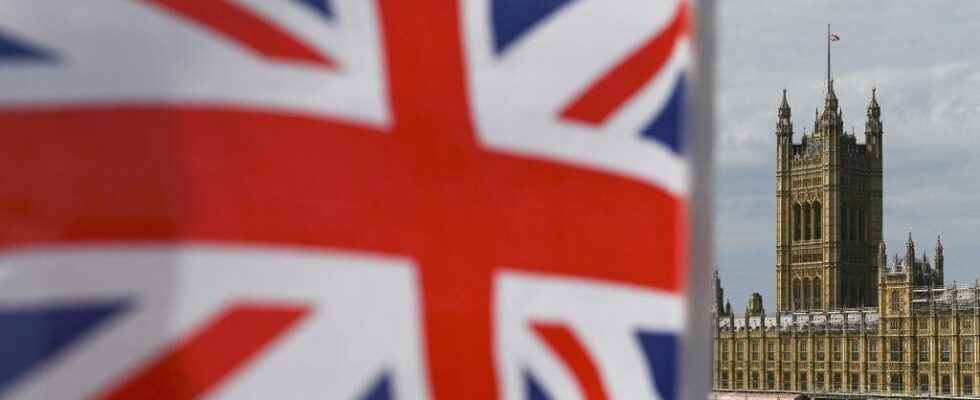Already two years since the United Kingdom left the European Union. From an economic point of view, the benefits are long overdue, especially for small businesses.
From our correspondent in London,
” Exporting costs me 25% more than before : Adrian Hanrahan, in his sixties, runs his family business Robinson Brothers near Birmingham. ” It has never been so difficult. We are drowning in paperwork. There is no improvement in two years “, he notes. Its 260 employees manufacture chemical products for the pharmaceutical and food industries. ” We are a niche. For example, we create one of the elements that we introduce into perfumes “, explains this boss. ” 70% of our production is exported, of which 65% is destined for the European Union. The remaining 5% goes to other countries in the world like the United States and China. »
Some countries no longer wish to work with him, such as Germany, because of the new complications linked in particular to border controls. A situation that gives a clear advantage to EU competitors who do not have to bear the same costs. And if the United Kingdom refuses to review its alliance with Brussels, this boss will have to put more than a million euros out of his pocket to continue to trade with his main customers. ” This is impossible in the long term for small businesses. The government does not listen to us. Above all, they defend an ideology. It’s all politics “Said Adrian Hanrahan.
This supporter of “remain” does not want to go back. ” It’s done, we have to move forward, make it work, find solutions “, does he think. But they don’t arrive. He is still looking for the benefits of Brexit : “ The problem is that there is none. We work harder and we spend more money. But we must remain optimistic. »
Customs fees that have tripled in two years
A hundred miles to the north, it’s a different story for Simon Spurell, head of the Cheshire Company. He makes Chester, a dense, crumbly cheese from cow’s milk. Soon retired, he decided to sell his company of fourteen employees to a rival company: Joseph Heler Cheese. ” Before, sending my parcels cost me 450 euros. Today it costs me 1 350 euros. I no longer had the means to work with the European Union. Customs charges have tripled over the past two years and small producers, who were not warned, were unable to make the necessary arrangements beforehand. ” I could no longer trade with my main customers, France and Italy, and the extra hours of work linked to bureaucracy meant that my business was no longer profitable at all. “, deplores this manufacturer discouraged by so many administrative formalities.
The new company owns 75% of Cheshire Company. Since its takeover, its European customers can once again receive the English cheese concocted by Simon. ” In the end, the only ones who suffer are those who live in the UK “, he regrets. In order to transport the goods to Europe, he hired Dutch truckers, paid by a company in Germany, which therefore pays its taxes to the European Union. ” The UK does not benefit from this. », concludes the one Boris Johnson, former Prime Ministerdubbed ” bloody cheese (bloody cheese). Simon Spurell had alerted the government on several occasions about the difficulties encountered by small producers since the introduction of Brexit.
Businesses facing a tsunami of new regulations
” They feel like they are banging their heads against a brick wall as nothing has been done to help them, almost two years after the Brexit deal was agreed said Shevaun Haviland, director of the British Chamber of Commerce. A tsunami of new regulations that small businesses couldn’t handle, unlike larger ones. Among the progress to be made: exempting small farms from the obligation to have a certificate of animal, plant and food origin, and more generally, reducing administrative formalities on the export of food products, reducing VAT, improving the in place work visas.
According to Jonathan Portes, an economist at Kings College, Brexit has reduced British foreign trade by 10 to 15% “. This administrative headache is reflected in the polls. Today, more people would choose to re-enter the European Union rather than remain excluded. According to a survey by Times, only a third of Brexiteers believe that leaving the European Union has been a success. According to the Yougov Institute, 47% of those questioned would vote in favor of membership.
A country weakened by the war in Ukraine but also by recent government policies
The UK needs a clear vision warn several economists. All the problems that the country is currently experiencing, linked to inflation which is stagnating between 10 and 11%, cannot be attributed solely to the war in Ukraine. The conflict has driven up energy prices, plunging the country into a cost of living crisis. But recent political decisions by the Conservative government have also weakened the country.
The Center for Economics and Business Research said the Liz Truss’ whirlwind stint in government, the key measure of which was to drastically reduce taxes, in particular for the wealthiest fringe, has damaged short-term growth prospects. The country must now find its place outside the European Union. There is, however, an encouraging sign: according to the Politico website, between the invasion of Ukraine by Russia and the departure of Boris Johnson, the dynamic has changed. Downing Street has sent positive signals to reach an agreement with Brussels, in particular on the Northern Irish protocol.
►Read also: The United Kingdom faces a shortage of doctors worsened since Brexit
►Listen: UK forces austerity to repair Brexit damage
